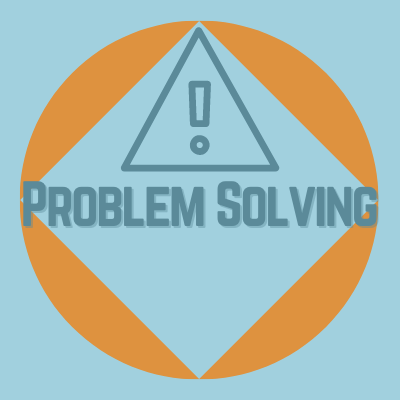3. Encouraging Reflective Thinking
Reflection is key to developing problem solving skills

How can we encourage reflective thinking?
Reflection is the process of thinking carefully about what is being done and is an important step of problem solving that will enable students to learn. “As students reflect, use imagery, talk to themselves, and reconcile new ideas with their schema of previous concepts, they gain ways to solve the problem” (McNeal, 1995, Learning not to think in a textbook-based mathematics class. Journal of Mathematical Behavior, 14: 205-234.)
Rather than giving students a list of problem-solving strategies to try out, they will benefit more by discovering these strategies themselves, reflecting on this process and communicating their findings in written and verbal form.
An effective way for students to reflect on the problem-solving strategies that they used is to keep a learning log. In this way students can consciously reflect on and develop some problem-solving strategies that can be used in various situations in their academic and personal lives.
As the parent/teacher you could ask some of the following questions to inspire deep thinking:
How did you approach this puzzle as a group/individually?
Did you try many different strategies?
What strategies did you try?
Did you try strategies that were not helpful? Why didn’t they help you?
When did you realise you had to try another strategy?
Which strategy worked best for you when solving this puzzle?
How could you apply this strategy when completing other tasks in school or at home?
Would this strategy be helpful in other types of problems?
Would you be able to teach this strategy to somebody else easily?
When did you realise you found the correct approach?
What did you find most challenging about this puzzle?
What got in the way of your progress if anything?
What did you enjoy most about this activity?
How well did your team communicate with each other?
What were some of the ways your teammates helped you to learn or overcome obstacles?
How did you help your teammates to learn and overcome obstacles?
Is there any way you might have hindered your teams progress?
What do you think your greatest strengths are?
In what areas do you think you have room to improve?
What would you personally do differently if you were to approach another puzzle with this group?
How can you better support and encourage your teammates in future puzzles?
How can you use what you have learned again in the future?
